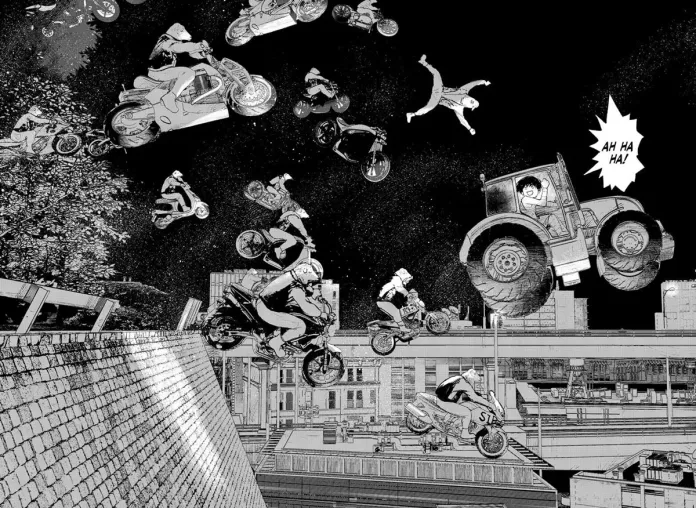As the generations come and go, the world of superheroes can become horribly mundane as older generations cling on to their better days with redundancy as the new age of creators waits lying in the shadows of other markets raring to go with bold and new superhero concepts. Looking deep into the foreign market, I found a relatively new and exciting tale of powers and choice with Sui Ishida’s Choujin X. It’s hopeful, and horrific with a bit of emo thrown in there for good measure.

The series follows Tokio Kurohara, a teenage boy that’s struggled to stand on his own since he was a little kid. He’s been a career follower, glued to the much more monolithic side of his best friend who has always been more popular and successful. However, when the two are attacked by a thug juiced up on near-demonic superpowers, Tokio steps up and injects himself with a formula designed to instantaneously make someone a Choujin in order to save his friend. This plunges him into a world of intrigue, mystery, and power as his curse finally allows him to step out on his own and become his own person.
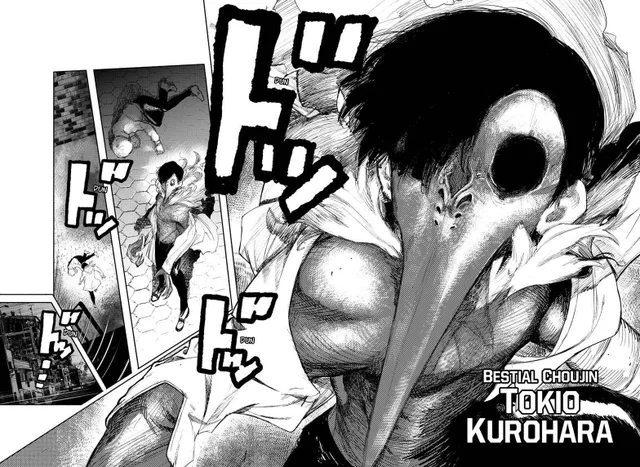
What grabbed me most about this series, before giving the first two volumes a read, was its visual style. Ishida’s visuals have certainly changed a bit since his work on Tokyo Ghoul, most likely due to the two year sabbatical he took from making manga. However, in that change is this rough, guttural, and Gothic impressionism that is still textbook enough to remain clear, but adds a true raw sense of emotion to this book, which is important, as the story of Choujin X is on driven by Tokio’s internal struggles with insecurity, aimless, and the discovery of oneself in the face of a life changing curse. This rougher style also elevates action scenes to a great degree. They carry with them a level of impact, intensity, and speed that reads as believable, even when that action scene involves a lady who transforms into a kaiju-sized snake.
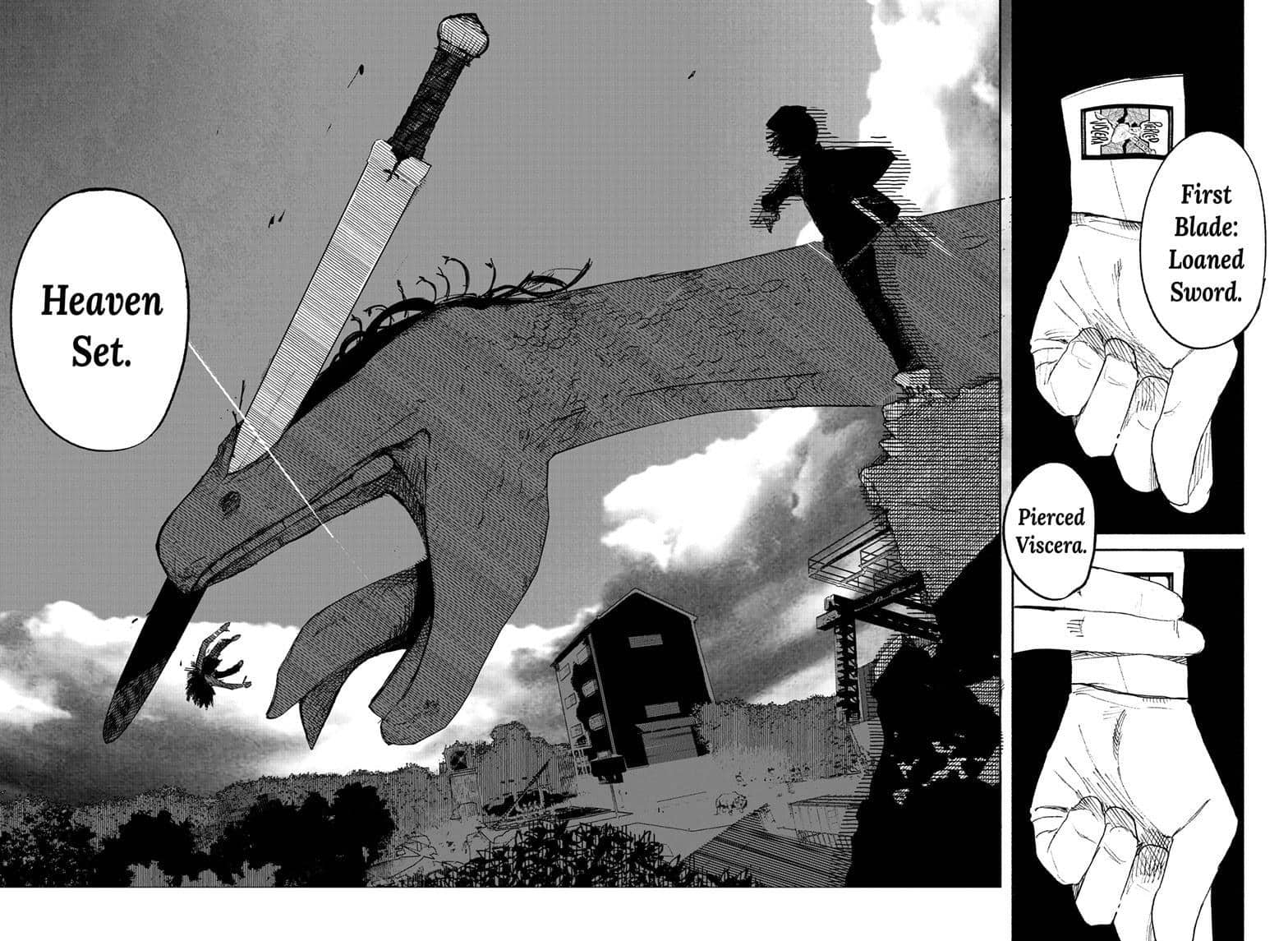
Ishida’s use of violence and grotesque, cryptid imagery funneled through this rougher penciling style comes together to tell a story with so much raw emotion its difficult for readers not to find pieces of themselves and their darkest insecurities wrapped up in Tokio’s journey towards being a hero. Being a hero, or having powers, is not a fantasy in this story. It’s a factor of life that gives Tokio purpose but strips him of the one he once had. His power is one that transforms him into a vulture-like monstrosity, a representation of his time spent living life on the social spoils of others. The series carries a unsubtle yet still highly philosophical theme about discovering reasons to live through the service of others, and is tackled with poignancy.
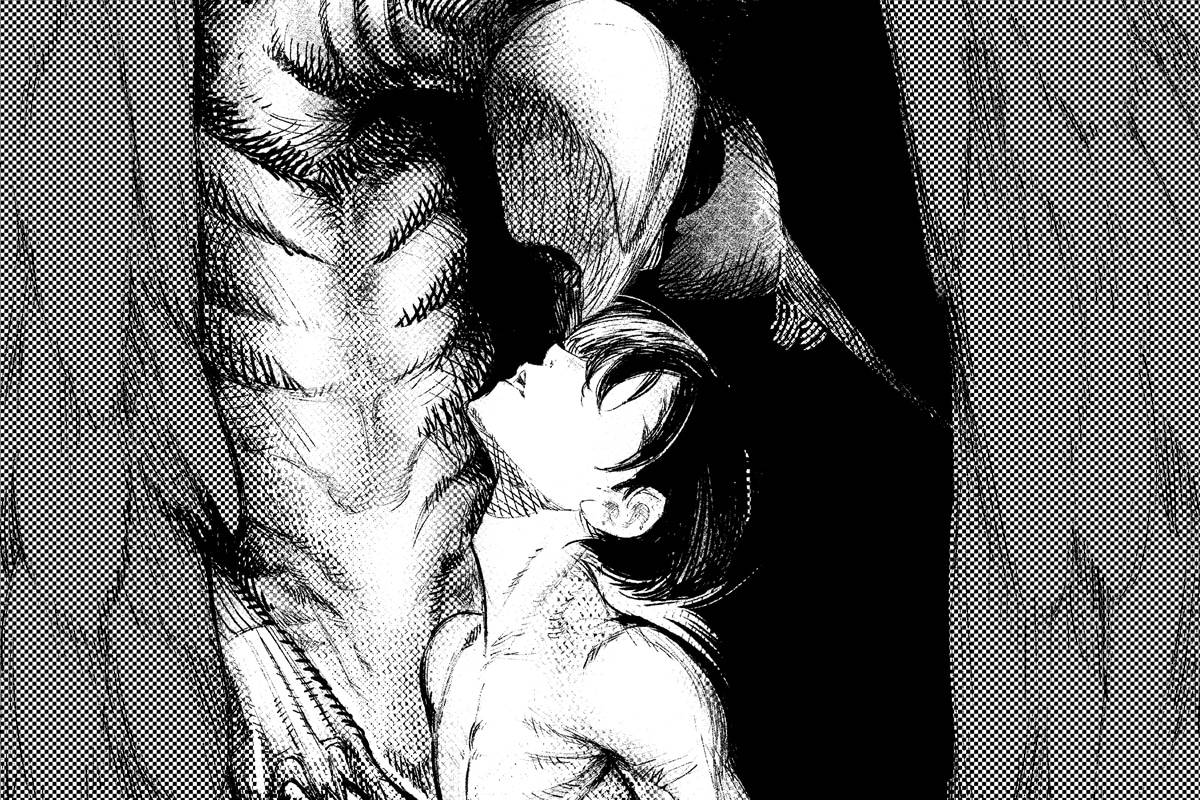
A ‘choujin’ is someone who’s either born with, or in the case of our main character, given powers that alter their being into something more than human. What’s interesting about this is how genre-defying Ishida’s use of tropes are. These powers manifest and are treated in the same way we here in the real world think of cryptids. Choujin are not encouraged to use their powers, and while they aren’t openly vilified by society, they still struggle against the undercurrents of societal bigotry. It makes the choice for one to be a hero all that powerful and engaging. Not everyone with powers in this world is a superhero, which is a far cry from most popular superhero worlds, giving weight and risk to heroics in this series, something the western market has struggled to do as of late.
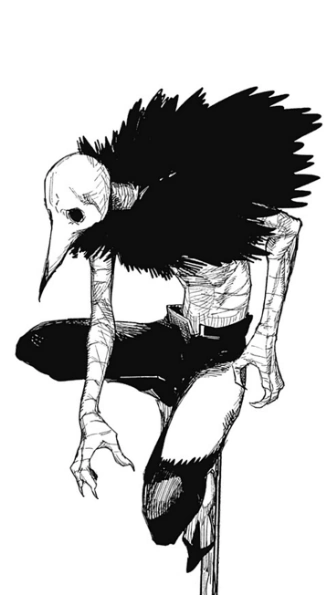
While the book looks, and sounds hopelessly miserable, it uses all of that to generate a story of hope and growth. There’s a very strong side cast here that epitomizes and helps shine a light into the dreary world of powers, Tokio himself a positive person struggling to push through both the physical and emotional antagonists he faces down in every chapter. The book, as of its first two volumes, has a lot to explore with Ishida’s well-paced world building that introduces new ideas that flesh the book’s greater lore out exactly when the plot demands. There is a school and organization in place to ensure those with powers are well equipped to handle themselves, and while they play a central role in the story, aren’t the reason for the story. They play a role as they naturally would, but the story isn’t about Tokio being wrapped up in this organization, which is a nice change of pace from genere-standards. The book also builds in some innate and well-executed instances of camp that adds to the excitement that this book, as any shonen story absolutely needs. In its blending of Gothic emotion and shonen action/world-building, Choujin X is a rich and genre-defying story that is able to tell a twisted and dark tale that manages to remain just as hopeful as Superman.
